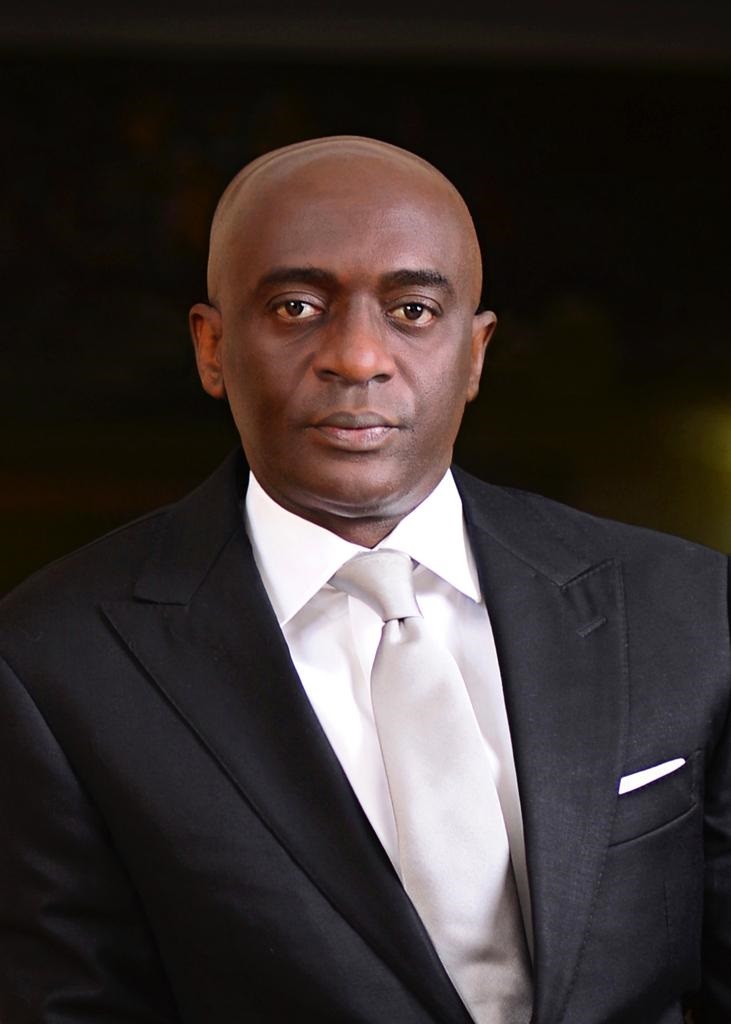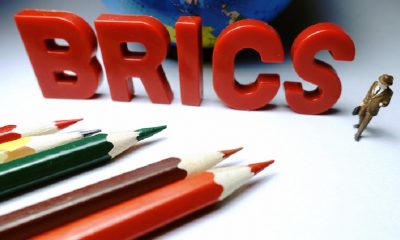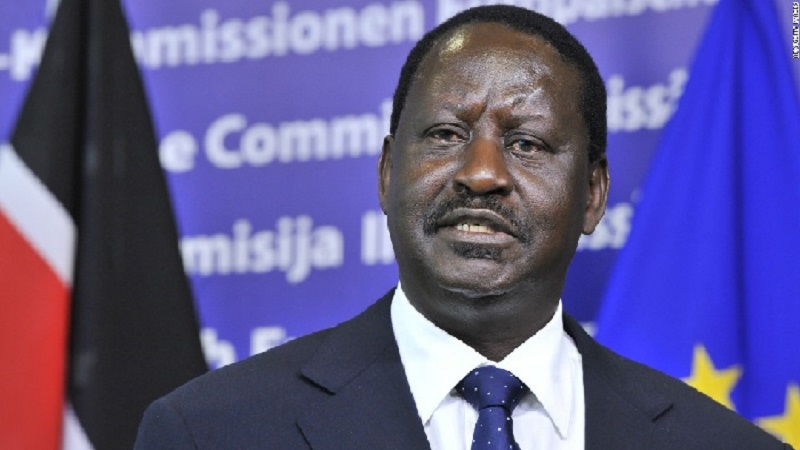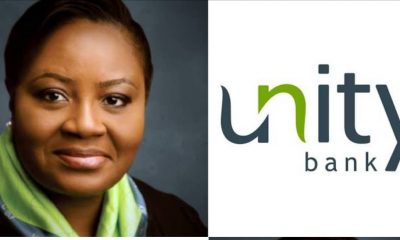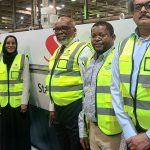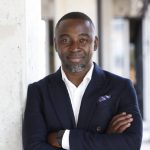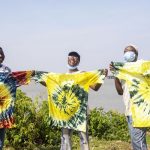Feature/OPED
Sustainable Development is a Necessity for Every Society in the World
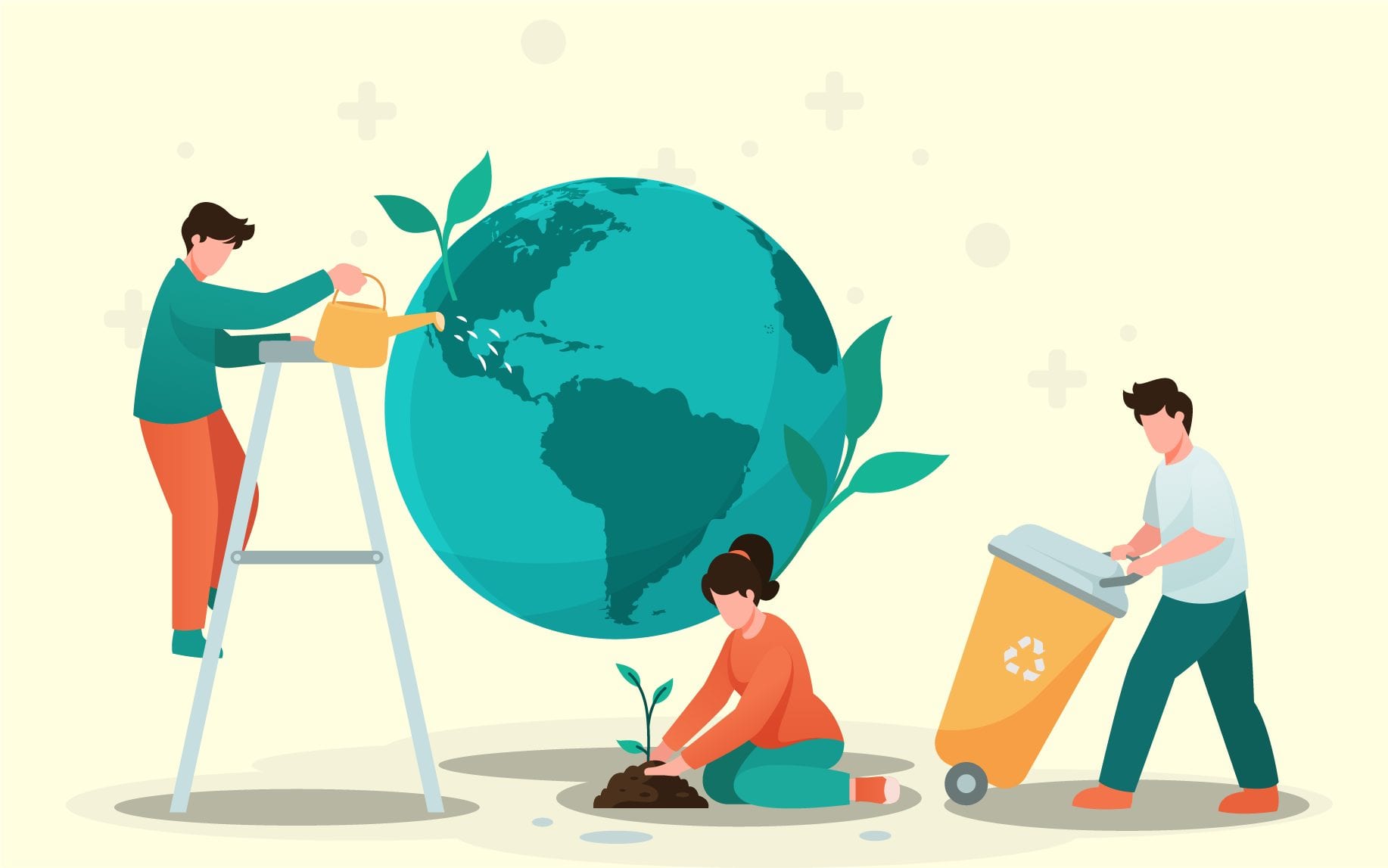
By Professor Maurice Okoli
For the majority of African leaders and delegates, it was a momentous achievement, to participate and contribute speeches with diverse themes at the podium during the 78th session of the UN General Assembly (UNGA) in New York. The UNGA traditionally meets in September, the highest global gathering to make several significant decisions on what the organization, consisting of 193 UN members, is generally expected to do. It has wrapped up its 78th annual session with another huge pack of commitments to engage in reshaping a better life for the entire population and Development paradigms in the world.
In the context of Africa’s Development, the extraordinary sessions combined with several top-level bilateral and multilateral meetings on the sidelines critically highlighted the existing multiple Development obstacles, the potential to reshape the continent’s priorities and bring to life the vision of African desires and the strategic pathways forward in the emerging future.
From the various perspectives and interpretations, African leaders have restated their longstanding fears of global South political dominance and hegemony, the shortfalls of a unipolar system, expressed support for some structural reforms within international organizations, and finally emphasized, as always, comprehensive and long-term Development plans for Africa that is already incorporated into the African Union’s Agenda 2063.
The idea of the UN’s sustainable development goals is nearing its extinction. In the experts’ views, especially among African politicians, intellectuals and development leaders during this period of pursuing the SDGs, to a large extent, the progress has been influenced by geopolitical enmity. And noticeably fierce confrontation between key global powers and multinational development banks have also slackened the expected financial pledges and commitments.
What Leaders Say at the General Assembly
United Nations chief António Guterres has stressed this point concerning the SDGs in different forms at several summits and conferences. At the opening of the meeting, he afresh called for a world that should be “more representative and responsive to the needs of developing economies” and added that the least developing world is persistently “trapped in a tangle of global crises.”
Without mincing words, Guterres has repeatedly called for sustainable and predictable financing for peacebuilding efforts. He also expressed concern about unconstitutional changes of government in parts of Africa and stressed the need for collaboration with the African Union to support peace efforts across the continent.
Now is the time to lift the declaration’s words off the page and invest in Development at scale like never before. The political statement includes a commitment to financing for developing countries and clear support for an annual SDG Stimulus of at least $500 billion.
A newly established ‘Leaders Group’ will develop clear steps to get funds flowing before 2024. The Leaders Group (LG) must turn commitments made at the Summit into concrete policies, budgets, investment portfolios and actions. In addition, LG should strengthen support for action across six key SDG areas: food, energy, digitalization, education, social protection and jobs, and biodiversity.
The International Monetary Fund (IMF) and the World Bank are tasked to recapitalize and coordinate an urgent additional re-channeling of $100 billion in unused Special Drawing Rights. The Special Drawing Rights is an international reserve asset developed by the IMF to supplement the official foreign exchange reserves of its member countries and help provide them with liquidity. The largest-ever allocation, worth $650 billion, was carried out in August 2021 in response to the economic crisis generated by the COVID-19 pandemic.
Nearly all African leaders have development-oriented complaints. Current Head of ECOWAS and Nigerian President, Bola Ahmed Tinubu, in a few words on behalf of Nigeria, on behalf of Africa, indicated that failures in good governance have hindered sustainable development in Africa. “But broken promises, unfair treatment and outright exploitation from abroad have also exacted a heavy toll on our ability to progress,” he said, and despite the underlying conditions and causes of the economic challenges, promised to make relentless efforts to re-establish democratic governance in West Africa, including the French-speaking states now under interim military administrations. The wave crossing parts of Africa does not demonstrate favour towards coups. It is a demand for solutions to perennial problems. The negative impact and related problems also knock on Nigeria’s door.
Bola Ahmed Tinubu, among other issues, said African nations would fight climate change but must do so on its terms. Continental efforts regarding climate change would register important victories if established economies were more forthcoming with public and private sector investment for Africa’s preferred initiatives. As for Africa, given its abundant land resources, the creative and dynamic people desire prosperity. Africa is not a problem to be avoided, nor is it to be pitied. Africa is nothing less than the key to the world’s future.
William Ruto, President of Kenya, in a flowering speech also indicated that the time is up to pursue global peace and sustain positive changes for impoverished billion people in the world. “The tragic spectacle of young people from Africa boarding rickety contraptions to gamble their lives away on dangerous voyages in pursuit of opportunities abroad, as conflict, climate and economic refugees, is a testament of the failures of the global economic system,” he asserted at the gathering.
From diverse standpoints, there is no need to be trapped in a false choice: sustainable development is robust climate action and climate action is development. It is quite explicit that Africa’s potential is defined by abundant and diverse resources, ranging from a youthful, highly skilled and motivated population, immense renewable energy potential and mineral resources, including critical minerals, and extensive natural capital endowment, including 60% of the world’s unutilised arable land.
Capital and technology can find no better returns anywhere, than the tremendous investment opportunity in Africa’s potential. Such investment would drive green growth creating jobs and wealth while decarbonising global production and consumption. Therefore, to unlock financing at scale and create incentives for investments at scale in green opportunities, the Nairobi Declaration makes the reform of the international financial system a priority.
Moments like now place the nature and purpose of multilateralism under sharp scrutiny for history’s honest examination and judgement. If any confirmation was ever needed that the United Nations Security Council is dysfunctional, undemocratic, non-inclusive, un-representative and therefore incapable of delivering meaningful progress in the world.
Multilateralism has failed due to the abuse of trust, negligence and impunity. It is time for multilateralism to reflect the voice of the farmers, represent the hopes of villagers, champion the aspirations of pastoralists, defend the rights of fisherfolk, express the dreams of traders, respect the wishes of workers and, indeed, protect the welfare of all peoples of the world.
According to Ruto, the UN Secretary-General provided a graphic snapshot of the condition of the world and humanity, a situation that calls into question the state of multilateralism in terms of its founding aspirations, as well as its present agenda. The poverty, fear, suffering and humanitarian distress haunting the victims of conflict, drought, famine, flooding, wildfires, cyclones, deadly disease outbreaks and other disasters, are the outcomes of sustained violation of the most essential principles, and the systematic neglect of humanity’s dearest values, which lie at the very foundation of the UN charter since 1945.
President of South Africa, Cyril Ramaphosa, addressed the UN General. Assembly on September 19, while pointing to the fact that every human effort should be directed towards realizing the 2030 Agenda for Sustainable Development said, “Our energies have once again been diverted by the scourge of war.” While touching on several points including the need for inclusive, democratic, and representative international institutions, he also emphasized that “over millennia, the human race has demonstrated an enormous capacity for resilience, adaptation, innovation, compassion and solidarity … these qualities must be evident in how we work together as a global community and as nations of the world to end war and conflict.”
Referring assertively to the meeting held in early September by his country alongside Russia, India and China, and the BRICS summit in Johannesburg, in late August, President Ramaphosa urged all nations to demonstrate and resolve to secure a peaceful, prosperous, and sustainable future for the world and, more importantly, for the generations that will follow. “Leaving no one behind – that is the duty that we all have,” he said, recalling the guiding promise made by the international community with the adoption in 2015 of the 2030 Agenda for Sustainable Development.
Scanning further through reports, UN refugee chief Filippo Grandi insisted that the world had “the means and the money” to prevent every one of those deaths. He called for an end to the fighting and more financial support for the emergency response in the country. The UN agency pointed to a context of “increased epidemic risk” and challenges for epidemic control across Africa. UNHCR’s Chief of Public Health, Dr Allen Maina drew attention to acutely malnourished and millions of people requiring care for chronic diseases in war-torn and conflicting African regions.
Speakers have equally highlighted the importance of engaging the youth in the development strategy and the decision-making processes. Often said, the youth are vibrant and could play supporting roles, therefore, the focus should be directed on their training and be given the necessary guidance and directions. According to the African Development Bank, Africa’s youth population is experiencing rapid growth and is projected to reach 850 million by the year 2050. Furthermore, young individuals in Africa are anticipated to make up half of the 2 billion working-age population by 2063 – the continent being the world’s youngest region with a median age of 25 years.
Sustainable Development Goals (SDGs)
Insights into the United Nations’ SDGs, as already stated, since its inception in 2015, there is still a lot to be done, especially in addressing the ongoing global challenges. Some notable facts included The number of people living in extreme poverty in 2022: 657-676 million vs. 581 million pre-COVID pandemic.
With steps to end hunger, achieve food security, improve nutrition, and promote sustainable agriculture. One in 10 people worldwide are suffering from hunger. Nearly one in three people need regular access to food (2020).
Experts say that quality education and gender equality are progressing steadily, but it would take another 40 years for women and men to be represented equally in national political leadership.
Affordable and Clean Energy: Ensure access to affordable, reliable, sustainable and modern energy for all. Progress in energy efficiency needs to speed up to achieve global climate goals.
Industry, Innovation and Infrastructure: In an assessment, there is still the necessity to build resilient infrastructure, promote inclusive and sustainable industrialization and foster innovation.
And the need to ensure sustainable consumption and production patterns. Issues persistent relating to climate change, biodiversity loss, and pollution. Climate Action: take urgent action to combat climate change and its impacts.
With partnerships for the goals: Strengthen the means of implementation and revitalization of the global partnership for sustainable development. As Secretary-General António Guterres remarked on September 18 at the UN General Assembly, the SDGs need a global rescue, which includes stimulus support of at least “$500 billion a year as well as an effective debt-relief mechanism that supports payment suspensions, long lending terms and lower rates.”
Arguably, having a clearer understanding of these development goals is highly noteworthy. It would encourage global leaders to reassess current policies and practices and explore ways to enhance commitments towards their realization further.
BRICS, G20 and G77+China
Fundamentally, all these questions mentioned above and many others have predominantly featured during the past few years but have risen to greater heights recently during the BRICS (Brazil, Russia, India, China and South Africa) meeting in Johannesburg, the G20 in New Delhi and G77+China summit in Cuba. At these high-level meetings, there were passionate appeals to rapidly address development gaps and disparities, to ‘change the game’s rules’ between the North and the South.
But then, those organizations (BRICS, G20, G77+China and others) are steadily recognizing the basic facts about global re-configuration, economic competitiveness and emerging new multifaceted relations between nation-states. Most of these states in the South, especially Africa is de-alienating away from some countries in the global North, entities further considered them as the primary sources of their under-development and causes for their internal conflicts, resulting in Economic deficiency.
In retrospect, BRICS held its 15th Summit in Johannesburg. There were two significant questions: first, new members joined the Group, and second, China rolled out another phase of industrial support program for Africa. It is noteworthy to say here that Russia and China are actively contributing to the transformation of the Group into a new geopolitical and economic block.
Noticeably, other key global powers are also scrambling to Africa. The dominating trend is that China, for instance, has, over the past two decades, demonstrated a sufficiently deep understanding of Africa’s Infrastructural development needs. In practical terms, China’s significant-scale contributions and active growing influence worry the most Developed nations of the world, especially the United States.
Quite recently, the G20 also held its traditional Summit in New Delhi. In spite of various divergent arguments during the Summit, however, Brazilian President Luiz Inacio Lula da Silva strongly called for focusing on unity, rather than attempts to oppose the G7 group, and the G20 group. India also expressed concerns regarding the enlargement process, considering it a method to amplify the influence of China is the state with the largest economy in the Group.
“Therefore, the Brazilian presidency of the G20 has three priorities,” Luiz Lula told the meeting. “The first one is social inclusion and the fight against hunger, energy transition and sustainable development … and thirdly the reform of global governance institutions.” All these priorities are part of the Brazilian presidency’s motto: ‘Building a fair world and a sustainable planet.’ Two task forces will be created – the Global Alliance Against Hunger and Poverty and the Global Mobilization Against Climate Change.
In this context, India did powerfully and strategically well in controlling and leading groups from all camps to negotiate to have a unified compromise. BRICS leaders reached agreements around global debt, reforms to multilateral institutions such as the World Bank, climate financing and the adoption of a worldwide green development pact, with the latter two are expected to be critical features of the G20 presidency in 2024.
Records show that the G77+China, a group of developing and emerging countries representing 80 per cent of the world’s population, held its Summit in Cuba. Likewise, it was held amid widening geopolitical differences, the fight against climate change and solid calls for reforms of the global economic system. In short, it sought to “change the rules of the game” of the worldwide order.
“After all this time that the North has organized the world according to its interests, it is now up to the South to change the rules of the game,” Cuban President Miguel Diaz-Canel said at the opening of the Summit.
Diaz-Canel said that developing nations were the primary victims of a “multidimensional crisis” in the world today, from “abusive, unequal trade” to global warming.
The G77+China bloc was established by 77 countries of the global South in 1964 “to articulate and promote their collective economic interests and enhance their joint negotiating capacity,” according to the Group’s website. Today, it has 134 members, among which the website lists China, although the Asian giant says it is not a full member. Cuba took over the rotating presidency in January.
Developing Nations’ Debt Trap
Far ahead of the New York meetings at the United Nations, academic researchers Vitor Gaspar, Marcos Poplawski-Ribeiro and Jiae Yoo have argued that global debt recorded another significant decline in 2022; it is still high, with debt sustainability remaining a concern. Referencing the Global Debt Database, the researchers made an explicit case that the total debt stood at 238 per cent of global gross domestic product last year, nine percentage points higher than in 2019.
In US dollar terms, debt amounted to $235 trillion, or $200 billion above its level in 2021. China played a central role in increasing global debt in recent decades as borrowing outpaced economic growth. Debt in low-income developing nations also rose significantly in the last two decades.
Several reports also note, with authenticity, that Africa’s debt to China surpassed $140 billion as of September 2021. However, the International Monetary Fund (IMF) says about $285 billion would be required by African countries to finance major infrastructural projects from 2021-2025. China has risen to become a top global lender with significant stakes that exceed more than five per cent of global Gross Domestic Product (GDP).
The COVID-19 pandemic’s economic effects and Russia’s invasion of Ukraine have made it more difficult for many African states to pay their Debts. Now, 22 low-income African nations are either already experiencing a debt crisis or are at significant risk of experiencing it. In fact, the top 10 African states with the highest debt to China include Angola, Ethiopia, Zambia, Kenya, Nigeria, Cameroon, Sudan, DRC, Ghana and Côte d’Ivoire.
In contrast, generally, more than half of low-income developing nations are in or at high risk of debt distress, and about one-fifth of emerging markets have sovereign bonds trading at distressed levels. Policymakers will need to be unwavering over the next few years in their commitment to preserving debt sustainability.
Some are advocating for genuine reforms at G20, suggesting further the possibility for well-refined and coordinated cooperation between the North and the South. Of course, a more excellent representation of the Global South would create a paradigm shift. For instance, Yaroslav Founder of BRICS+ Analytics Yaroslav Lissovolik argues that during the 15th BRICS in August, apart from the more excellent representation of Africa and the Global South in the G20 forum, another significance of AU’s admission to the Group of 20 is that it creates greater scope for synergies and closer cooperation between globalism (global institutions and platforms such as the IMF, World Bank, WTO, G20) and regionalism (regional integration blocs, regional development banks and regional financing arrangements). If other regional blocs do become part of the G20 platform, there will then be scope for these blocs to work more closely with the WTO, while regional development institutions could coordinate their operations with the IMF and the World Bank.
With the world facing a challenging economy, geopolitical tensions, and the deepening effects of the climate and nature crises, achieving the SDG targets set out in 2015 currently needs to be on track. According to the UN, progress on more than 50% of the targets must be more substantial, stalled, or backsliding. The private and civil sectors must play a key role, alongside governments, in supporting and accelerating sustainable Development.
“To achieve the SDG targets by 2030, significant innovative efforts are still required,” said Klaus Schwab, Founder and Executive Chairman of the World Economic Forum. “Through the Sustainable Development Impact Meetings, which bring together governments, business and civil society, we aim to make a tangible contribution to creating a more sustainable, inclusive and resilient world.”
In the course of writing this article and reading through the UN General Assembly reports, one thought appeared that after decades of restrictive IMF and World Bank loans, poverty, hunger, and conflict persist throughout the continent. While many attribute this to Africa’s governance challenges, in reality, a deliberate imperial agenda has also hindered the continent’s Development in the political, economic, and security sectors.
The rise of a new global pole to challenge the old unipolar order has had a notable impact across sub-Saharan West Africa, which, in recent years, has seen a surge in military coups, shifting power away from regimes that had long prioritized the interests of Western corporations. These coups occurred in Chad (April 2021), Mali (May 2021), Guinea (September 2021), Sudan (October 2021), Burkina Faso (January 2022), Niger (July 2023), and Gabon (August 2023) – all very resource-rich but with abnormally poor living conditions. These African states have to pursue development-oriented policies to uplift their vigorous status out of abject poverty.
Therefore, it is commendable that participants at UNGA in New York have critically reviewed a series of carefully curated discussions to advance work on specific areas of the 17 SDGs. The robust programme includes key areas such as accelerating the reskilling revolution, harnessing artificial intelligence for better jobs, improving access to nutrition, advancing the energy transition, responding to the climate and nature crises, supporting the social economy, advancing gender equality, and promoting digital and data-driven health.
Admittedly, we are in a highly critical period. There are many obstacles to Africa’s political stability, economic development and integration, and building trust and credibility. One major success was the African Union’s ascension into G20, giving it a louder voice. But that’s not all to it; AU needs to sort out the potential controversies and contradictions in the geopolitical landscape. Alternative to the rules-based order, BRICS and its new members, Saudi Arabia and the UAE, have extensive interests across Africa, prioritizing Africa Agenda 2063 without vacillating the pendulum.
In a modest conclusion of this discussion, African leaders have to face the existing challenges and emerging opportunities within the context of geopolitical changes. In addressing these, African leaders need to understand that the current developments in Africa have pronounced hyperbolic anti-colonial and anti-western rhetorics that threaten the logical appeal for technological transfer and external financial support for Sustainable Development Goals (SDGs).
Therefore, African leaders have to acknowledge humbleness while putting order first in their own homes in terms of reforming the political system, uprooting deep-seated corruption, working towards good governance, transparency and accountability, and rules of law as well as ensuring the effectiveness of institutions of power. From the pragmatic perspective of new diplomacy, it is crucial to underline that there should be a geopolitical balance of power rather than uttermost accusations and outright confrontation in the emerging multipolar world.
Professor Maurice Okoli is a fellow at the Institute for African Studies and the Institute of World Economy and International Relations, Russian Academy of Sciences. He is also a fellow at the North-Eastern Federal University of Russia. He is an expert at the Roscongress Foundation and the Valdai Discussion Club.
As an academic researcher and economist with a keen interest in current geopolitical changes and the emerging world order, Maurice Okoli frequently contributes articles for publication in reputable media portals on different aspects of the interconnection between developing and developed countries, particularly in Asia, Africa and Europe. With comments and suggestions, he can be reached via email: markolconsult (at) gmail (dot) com
Feature/OPED
Navigating the Maze: Solutions for Nigeria’s Flourishing Foodtech Industry
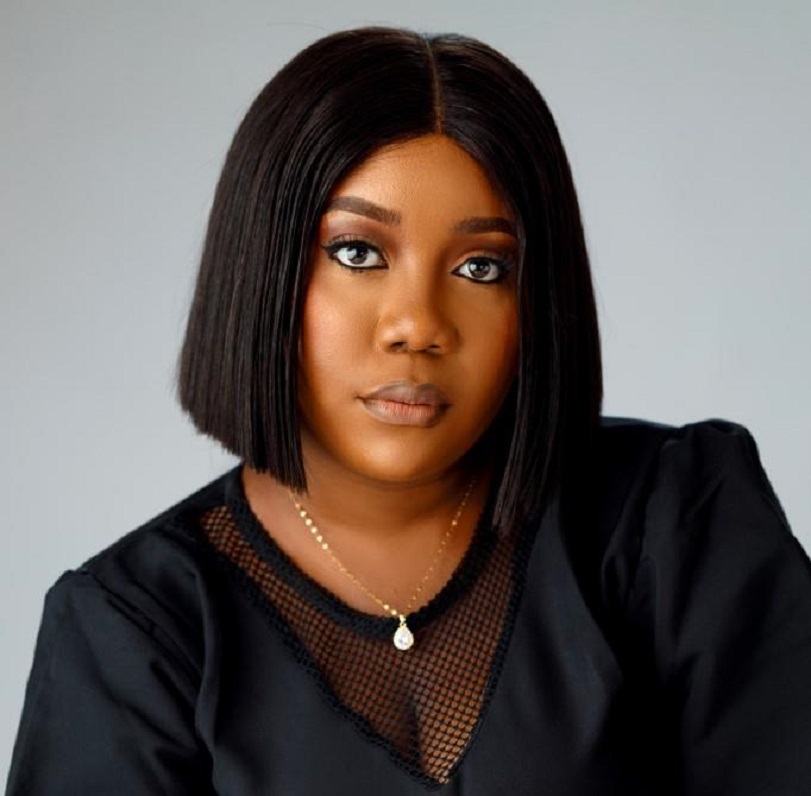
By Diana Tenebe
Nigeria’s foodtech sector holds immense promise to transform our nation’s food production, distribution, and consumption systems. However, this burgeoning industry currently navigates a complex maze of challenges that could significantly hinder its progress.
While innovation and entrepreneurial drive are abundant, a confluence of infrastructural deficits, economic headwinds, technological disparities, and logistical complexities casts a shadow on the sector’s long-term viability.
Understanding and addressing these multifaceted hurdles is paramount for foodtech companies aspiring to thrive and contribute meaningfully to Nigeria’s food security.
One of the most significant impediments to the foodtech sector’s advancement is Nigeria’s persistent infrastructural weaknesses. The unreliable power supply, a well-known constraint for businesses nationwide, directly threatens food preservation, increasing spoilage risks and driving up operational costs for companies reliant on refrigeration and consistent processing.
Similarly, the often-deteriorated state of our road networks complicates logistics and transportation, hindering the efficient movement of goods from farms to consumers and across the supply chain.
Furthermore, limited access to clean water exacerbates operational challenges, particularly for maintaining food processing and hygiene standards. Collectively, these infrastructural shortcomings inflate operational expenses and introduce vulnerabilities throughout the food supply chain.
Economic constraints add another layer of intricacy. Fluctuations in currency exchange rates create instability in pricing and procurement, especially for businesses dealing with imported technologies or ingredients. Persistent inflation erodes consumer purchasing power and increases the cost of essential inputs, squeezing profit margins for startups.
Moreover, limited access to credit and investment capital makes it difficult for emerging foodtech companies to secure the necessary funding to invest in crucial technology, infrastructure, and expansion efforts. This financial constraint can stifle innovation and prevent promising ventures from reaching their full potential.
The digital divide also poses a unique challenge for foodtech companies aiming to leverage online platforms and digital solutions. While mobile phone usage is widespread in Nigeria, disparities in digital literacy and access to reliable internet connectivity can restrict the widespread adoption of online food ordering and delivery services, particularly in rural and underserved communities. This necessitates creative and inclusive strategies to bridge the digital gap and reach a broader consumer base.
Inefficiencies within the supply chain represent a critical bottleneck in the Nigerian food system. Fragmented agricultural supply chains, characterised by numerous intermediaries and a lack of transparency, contribute to alarmingly high post-harvest losses.
Inadequate storage facilities and inefficient transportation infrastructure further compound these issues, leading to significant waste and price volatility. Addressing these systemic weaknesses is crucial for ensuring a stable and affordable food supply for all Nigerians.
Navigating Nigeria’s regulatory landscape can also be a daunting task for foodtech businesses. The presence of multiple regulatory agencies, coupled with often bureaucratic and time-consuming processes for obtaining licenses and permits, can create significant hurdles for startups. Clear, consistent, and streamlined processes within the regulatory framework are essential to foster a more enabling environment for innovation and growth.
Building consumer trust and acceptance for new food technologies requires overcoming inherent skepticism and unfamiliarity. Concerns regarding food safety, quality, and the security of online transactions can hinder the adoption of novel food products and digital platforms. Transparent communication, robust quality control measures, and consistent consumer engagement are vital for building confidence and fostering widespread acceptance.
Finally, a notable talent gap exists within the Nigerian foodtech ecosystem. A shortage of professionals possessing specialised skills in food science, technology, business management, and logistics can limit the growth and innovation capacity of companies in this sector. Addressing this skills deficit through targeted training and development initiatives is crucial for long-term success.
Despite these significant challenges, promising pathways forward can be forged through innovative and context-specific approaches. Investing in localised infrastructure solutions, such as independent power generation and efficient localised logistics networks, can mitigate the impact of broader infrastructural deficiencies.
Exploring diverse funding avenues beyond traditional banking, including angel investors, government grants, crowdfunding, and revenue-based financing, can alleviate financial constraints.
Adapting to the digital divide by leveraging basic mobile technology and employing offline strategies like local agent networks can expand reach and inclusivity. Building resilient supply chains through direct farmer relationships, investing in aggregation centres, and utilising technology for farm management offer tangible solutions to logistical inefficiencies.
Proactive engagement with regulatory bodies and advocating for clearer, more supportive policies are crucial for navigating the regulatory landscape effectively. Building consumer trust necessitates transparent sourcing practices, clear communication about product benefits and safety, and active engagement with consumer feedback.
Finally, investing in talent development through collaborations with educational institutions and in-house training programs can bridge the critical skills gap.
Foodstuff Store is emerging as a business with a clear vision to directly confront several of these challenges. We are actively developing a decentralised network of businesses supported by strategically located distribution hubs across target states. This approach will directly address the limitations imposed by poor road networks, ensuring more localised access to our food products.
Furthermore, the establishment of regional storage facilities, including a state-of-the-art solar-powered cold storage, directly tackles infrastructural deficiencies related to food preservation and ensuring a consistent supply.
Foodstuff Store’s ambition for end-to-end management of the food supply chain, encompassing in-house production, direct sourcing, advanced storage solutions, and efficient distribution, offers a powerful solution to existing supply chain inefficiencies.
This integrated approach promises enhanced quality control, significant reductions in post-harvest losses, and a more reliable supply of both perishable and non-perishable goods for our customers.
Our aspiration to become the “Amazon for Food Products” is a clear and ambitious goal underpinned by a technology-driven approach to all aspects of our operational management. Foodstuff Store’s vision underscores a business model strategically designed to overcome significant hurdles within the Nigerian foodtech sector, offering a beacon of potential and a pathway to a more secure and efficient food system in a challenging yet remarkably promising landscape.
By Diana Tenebe is the Chief Operating Officer of Foodstuff Store
Feature/OPED
President’s Katsina State Visit Exposes Disconnect from People’s Needs
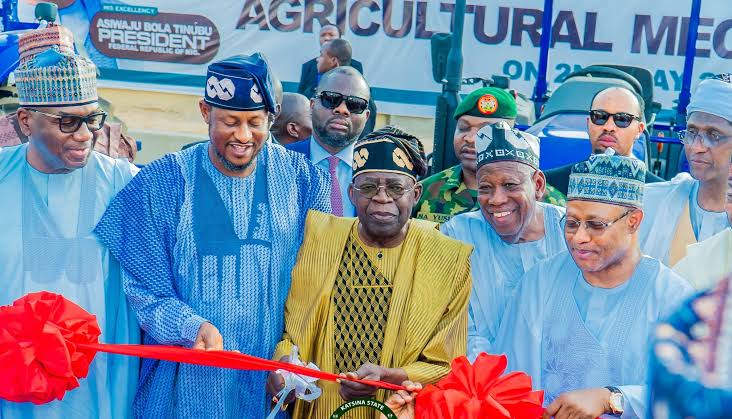
By Abba Dukawa
The recent visit by the President Bola Tinubu to Katsina State has sparked concerns about the disconnect between the government’s priorities and the people’s needs. The visit exposed the hypocritical approach to the need of their people, states and the northern Nigeria as whole. The quality of leadership in the region has been questioned, with allegations of self serving interest, ineptitude, and a lack of vision.
This is in spite of the fact that northern Nigeria as a whole faces numerous challenges that threaten its stability and development. Some of the key issues include insecurity, poverty, education, economic hardship, inequality and social and cultural challenges. The visit has been seen as an opportunity missed to engage with the state’s residents, listen to their concerns, and chart a way forward for development.
While the visit was marked by displays of pageantry and entertainment, the state’s pressing issues such as insecurity, poverty, and economic hardship, seemed to take a backseat. Critics argue that the government’s focus on superficial events rather than addressing the root causes of the state’s challenges is a clear indication of a disconnect from the people’s needs.
The introduction of Rarara’s wife to the President by the Katsina State Governor, contravening cultural and religious norms, raise questions about leaders’ priorities and values.
Current leaders in the north seem more focused on personal interests and political survival than advocating for the northern Nigeria improvement.
Regardless of the challenges in the region the Governors keep praise for the President’s economic reforms, notwithstanding the region’s struggles, is concerning. economic reforms should lift people out of poverty, create jobs, and stimulate growth. If not yielding tangible benefits, they need reevaluation.
The north needs leaders prioritizing regional development and working towards a brighter future. Leaders understanding our region’s problems and committed to tackling them head-on are crucial. It’s time for a shift in approach, prioritizing people’s needs over personal interests.
As we move forward, we must demand more from our leaders. We need leaders who will stand up for the north and work tirelessly to find solutions. Anything less is a disservice to the region and its people.
We need leaders who cultivate a culture of good governance, prioritizing accountability and transparency to address insecurity and promote development.
The north needs a visionary leaders who prioritize all citizens’ needs, regardless of tribe or religion, are crucial for unity and stability.
Leaders who accelerate economic development, create jobs, and provide essential services like education and healthcare can reduce poverty and insecurity.
We require leaders who will combat corruption and promote social justice, reducing inequality and fostering stability.
In northern Nigeria, effective security reforms are necessary, including modernizing security agencies, enhancing intelligence gathering, and addressing insecurity’s root causes to ensure public safety.
To bridge the gap between the government and the people, there is a need for leaders who understand the intricacies of the state’s problems and are committed to tackling them head-on. By prioritizing the people’s needs and working towards sustainable development, the government can build trust and foster a sense of ownership among its citizens
May God guide Nigeria towards true development and prosperity.
Dukawa, a concerned Nigerian, can be reached at abbahydukawa@gmail.com
Feature/OPED
Changing University Climate: It’s No Longer “Publish or Perish,” It’s “Be Visible or Vanish”
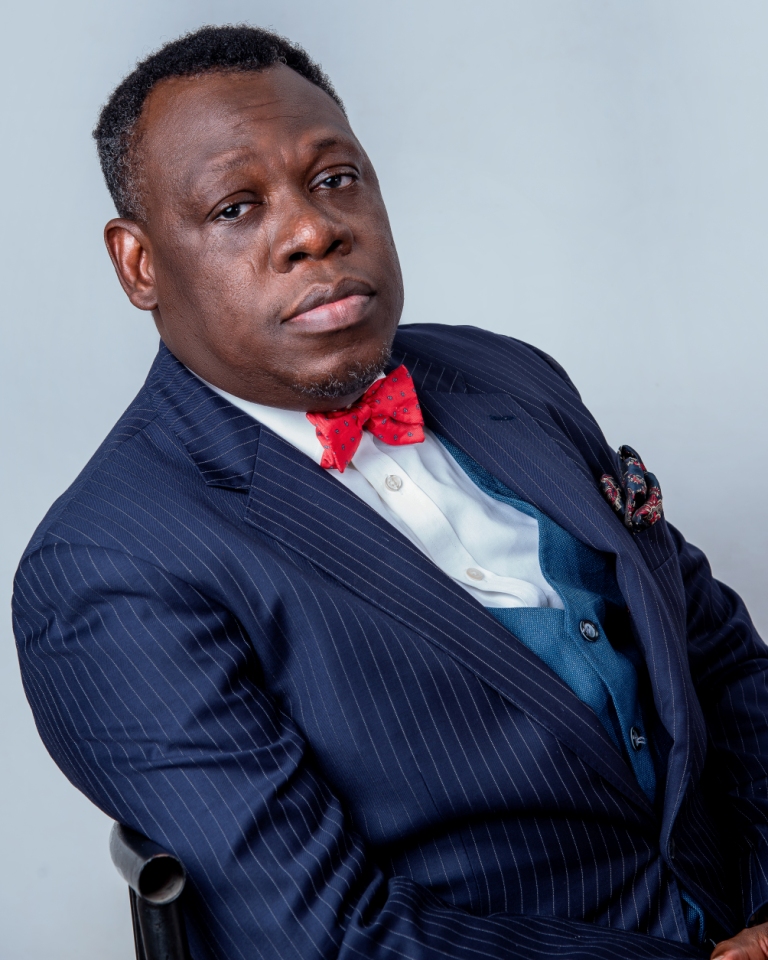
By Timi Olubiyi, PhD
For decades, the expression “publish or perish” has been of interest to academics, researchers, and professionals worldwide. Success is measured by the total number of peer-reviewed articles published, conference proceedings available online, and book chapters produced and published.
Despite so much research stemming from academic institutions, not many of these publications enjoy wide visibility in particularly those published in non-indexed journals.
Academics are continuously encouraged to increase the impact of their research endeavours, but what really constitutes impact in today’s academic environment? Is it the number of citations for your published research? Is it the amount of research funds your name and profile can generate? Is it the number of speeches and presentations you deliver about your research area? Is it the number of boards/committees/working groups that you serve on? And so on.
Though in the academic world, publication signifies validation and survival in most universities for promotion and relevance; in fact, it remains a cornerstone of career advancement. From early-career lecturers to senior professors, scholarly publishing plays a pivotal role in demonstrating expertise, building reputation, and meeting institutional benchmarks for promotion.
However, in today’s hyper-connected, information-saturated environment, a compelling principle has emerged: “Visible or vanish.” In other words, it is not just what you publish; it is who sees it, talks about it, and shares it that matters. Today, there is a stronger emphasis on quality, impact, relevance, and where your articles are published.
Globally, publications in high-impact journals measured and indexed in Scopus, Web of Science, Australian Business Deans Council (ABDC), Chartered Association of Business Schools (ABS), Science Citation Index Expanded (SCIE), Social Sciences Citation Index (SSCI), Directory of Open Access Journals (DOAJ), and more are given serious emphasis.
The primary reason for academic publication should be to advance knowledge, not merely for promotion or institutional expectations. In the author’s opinion, the true reasons for academic publication are to help scholars establish their intellectual identity, which represents a personal academic brand, provide a platform for international recognition, and create career milestones.
Though the gatekeeping role in academia has diminished, this has created a market for predatory journals for academics aiming for promotion. What are predatory journals? They are journals that are fraudulent or unethical academic journals that pretend to be legitimate scholarly publications but do not follow proper peer-review standards, editorial practices, or have recognized indexation.
All they need is money, money and money, no values or integrity. Predatory journals prioritize profit over quality and can seriously harm the academic career of a scholar with a global vision.
Though academic publications still remain respected, considering indexation is key even for institution-based journals (Journals run by university departments). Publication remains the foundation of academic promotion, but how and where academics publish matters more than ever.In an academic environment that is increasingly competitive, interdisciplinary, and global, researchers must not only produce excellent work but also strategically position it for maximum visibility and influence.
Both academics and researchers must consider more than just publication because we have only two key roles in publishing- to do our research and to communicate the research; the latter is the focus of this piece. Our research needs to be noticed, cited, and discussed due to its impact, or we risk being completely overlooked.
Platforms like Google Scholar, ResearchGate, LinkedIn, Facebook groups, Twitter (now X), and even TikTok have become unexpected grounds for attention. Researchers who communicate their work beyond academic circles through public lectures and engaging online posts amplify their impact dramatically.
A highly cited, visible paper can transform careers far faster than a series of obscure journal articles ever could. Therefore, for relevance and global standards, a quality publication with visibility is required.
Visibility today means publication with recognition, a visibility that can connect researchers to a broader global academic community. It can also enhance career and funding opportunities beyond the immediate environment of the researcher.
When publication is executed correctly, it has the potential to create change beyond academic circles, influence policies, and shape professional practices. It can also raise public awareness on critical issues like climate change and inequality.
With millions of articles published annually, even excellent research can be buried unless actively promoted to make it widely visible. Good visibility can also improve invitations for collaborations, keynote addresses, consulting engagements, and even career pivots beyond academia. Visibility, thoughtfully pursued, is no longer optional; it is extremely important. It may also help fulfil deeply personal motivations.
However, remember that scholarly publishing is not a one-way communication. It should encourage and invite critique, discussion, and debate; that is what visibility can provide. Research that enjoysvisibility has a higher chance of influencing policy, industry practices, and public understanding
It is safe to say it is key for researchers, scholars and academics to navigate this new landscape.Visibility is increasingly vital in academia as it directly influences career progression, research significance, and the capacity to engage with a broader audience. Enhanced visibility can connect to opportunities for international research partnerships, funding, and new audiences globally.
In the current competitive academic environment, merely publishing research is insufficient; scholars must proactively advocate for their work and establish a robust online presence to guarantee visibility and media attention. In an era of increasing pressure to publish quickly and frequently, remembering these true reasons can help academics stay focused on purpose over performance, ensuring that their contributions are not only counted but truly matter.
Therefore, publish wisely, publish well, and publish with purpose, along with incredible consistency. In the contemporary technological era, the way research information is handled, conveyed, processed, shared, and maintained has changed.Therefore, my colleagues, be a thought leader, there is a need to gravitate towards social media because it can improve visibility and also to promote research findings or knowledge thereof. So, welcome to the era of visible or vanish. Good luck!
How may you obtain advice or further information on the article?
Dr Timi Olubiyi is an expert in entrepreneurship and business management, holding a PhD in Business Administration from Babcock University, Nigeria. He is a prolific investment coach, author, columnist,seasoned scholar, Chartered Member of the Chartered Institute for Securities and Investment (CISI), and a registered capital market operator with the Securities and Exchange Commission (SEC). He can be reached on Twitter at @drtimiolubiyi and via email at drtimiolubiyi@gmail.com for any questions, reactions, and comments.
The opinions expressed in this article are those of the author, Dr. Timi Olubiyi, and do not necessarily reflect the views of others.
-

 Feature/OPED5 years ago
Feature/OPED5 years agoDavos was Different this year
-
Travel/Tourism9 years ago
Lagos Seals Western Lodge Hotel In Ikorodu
-

 Showbiz2 years ago
Showbiz2 years agoEstranged Lover Releases Videos of Empress Njamah Bathing
-

 Banking7 years ago
Banking7 years agoSort Codes of GTBank Branches in Nigeria
-

 Economy2 years ago
Economy2 years agoSubsidy Removal: CNG at N130 Per Litre Cheaper Than Petrol—IPMAN
-

 Banking2 years ago
Banking2 years agoFirst Bank Announces Planned Downtime
-

 Sports2 years ago
Sports2 years agoHighest Paid Nigerian Footballer – How Much Do Nigerian Footballers Earn
-

 Technology4 years ago
Technology4 years agoHow To Link Your MTN, Airtel, Glo, 9mobile Lines to NIN



